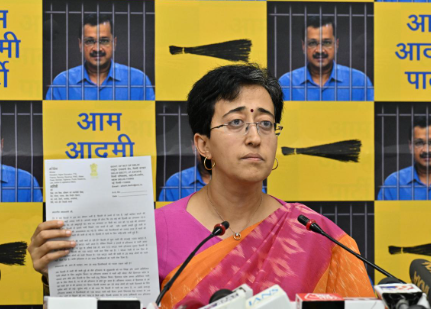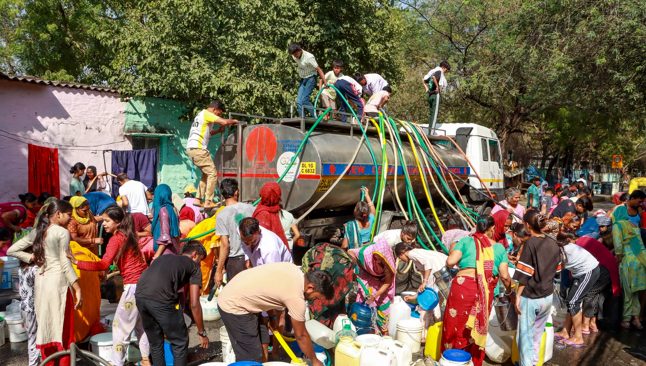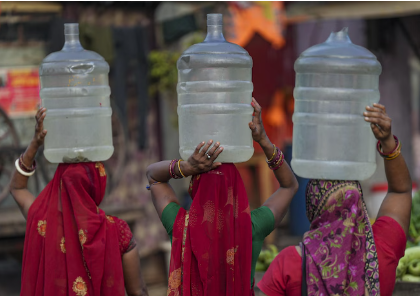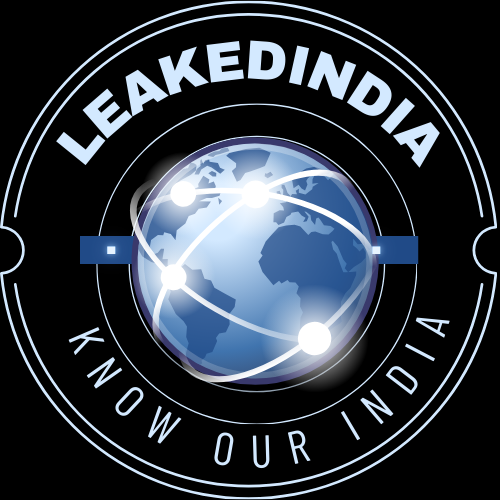Delhi Water Crisis
The fast urbanization, population increase, climate change effects, and poor water resource management in Delhi worsen the ongoing and urgent water crisis. This multifaceted catastrophe impacts millions of people and poses serious obstacles to the sustainable growth of the city.
With a population of more than 20 million, Delhi, the capital of India, is among the world’s most populated cities. The city’s water demand has increased dramatically over time as a result of urbanization, industrialization, and population growth. Unfortunately, the infrastructure supporting its water supply has been unable to keep up with the demand, resulting in ongoing shortages and a reliance on non-sustainable water sources.
NEW DELHI:

Atishi, the minister of water resources in Delhi, has vowed to go on an indefinite strike starting on June 21 if the capital’s water crisis doesn’t get better. About this, the leader of the AAP has corresponded with Prime Minister Narendra Modi by letter.
She has blamed the situation on Haryana’s failure to release Delhi’s fair share of water.
Speaking at a press conference, Atishi clarified that Haryana’s actions have caused Delhi to be dealing with a water deficit.

“Instead of 613 MGD, Haryana released 513 MGD of water to Delhi yesterday. Water in one MGD serves 28,500 people. This indicates that more over 28 lakh people did not have access to water,” she remarked.
Citizens’ struggles are made worse by the lack of water and the sweltering conditions, according to the minister.

“I’ve written to Prime Minister Narendra Modi asking him to address the water shortage. Starting June 21, she will go on an extended strike if the situation is not resolved within the next two days.
In an attempt to find a solution, Atishi said that the Haryana government has received several letters.
Water Supply and Sources
The Yamuna River, passing through Delhi, is the primary source of its surface water, while groundwater reserves make up most of its water supply. Industrial, agricultural, and sewage sources contaminate the river heavily. Due to contamination, purifying river water for human use is costly and difficult.
Delhi’s water issue is a complicated, multifaceted problem that calls for quick solutions and all-encompassing approaches. Government officials, legislators, civil society organizations, and locals must work together to address the situation.
Delhi may take steps to ensure that all of its citizens have equitable access to safe and reliable water, insuring a sustainable future for the city, by implementing sustainable water management practices, making investments in resilient infrastructure, and encouraging community participation.
Know More Updates
पीएम मोदी ने बिहार में नए नालंदा विश्वविद्यालय परिसर का उद्घाटन किया
PM Modi inaugurates new Nalanda University campus in Bihar
रियासी आतंकी हमला: बस खाई में गिरने से 10 तीर्थयात्रियों की मौत
Reasi terror attack: 10 pilgrims killed after bus falls into gorge
मोदी जी 3.0 कैबिनेट मंत्री लाइव अपडेट
Modi Ji 3.0 Cabinet Minister Live Update

Wow, awesome blog layout! How long have you been blogging for? you made blogging look easy. The overall look of your web site is great, as well as the content!